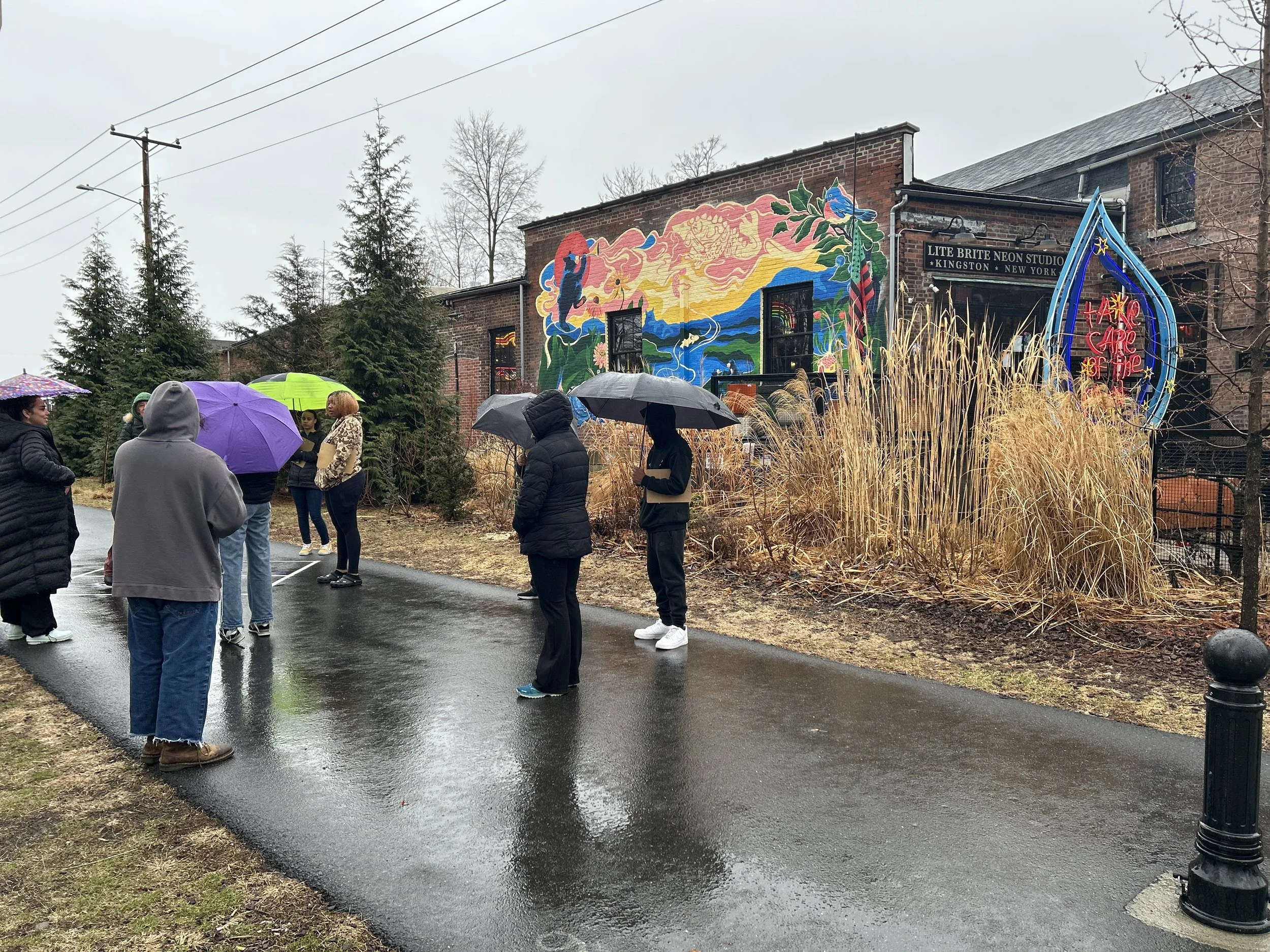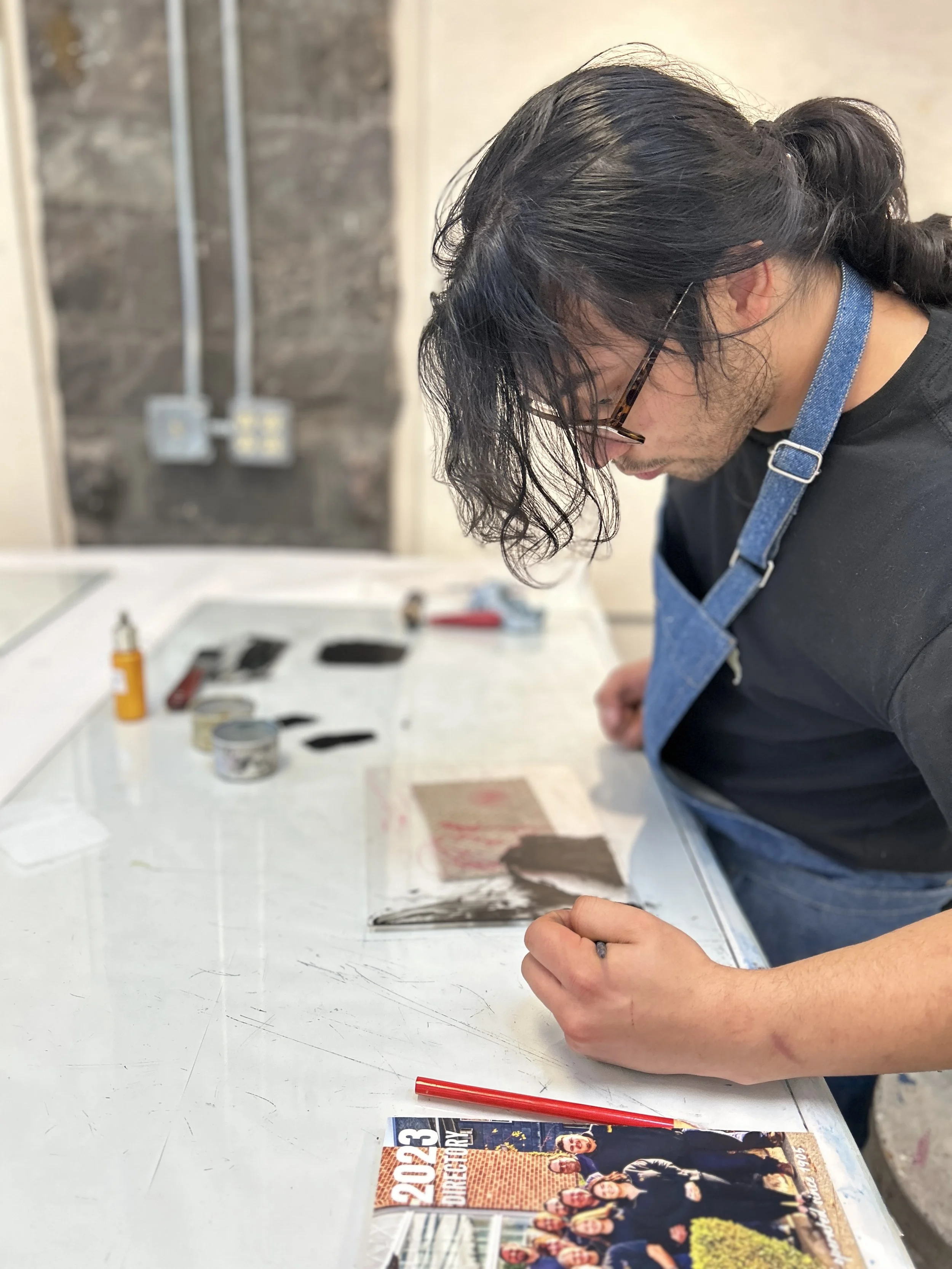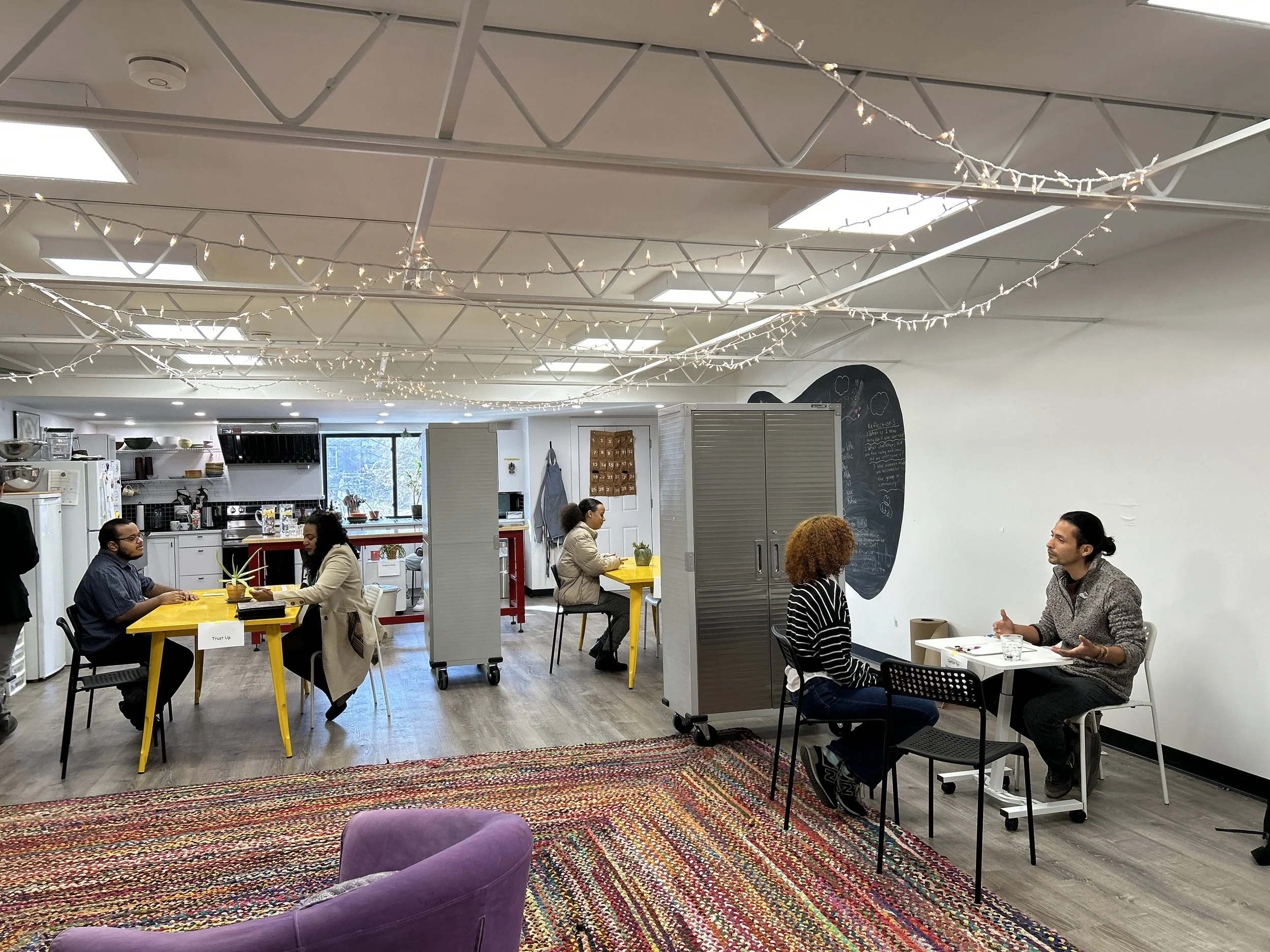Curriculum
Place Corps curriculum is led by local educators and community leaders. All workshops offered are organized by 5 core curriculum spokes. View these spokes below and click each link to view sample courses and workshops!
Mission Driven Leadership + Entrepreneurship
Politics, Ethics, + Aesthetics
Practical Life Skills
Creative Praxis
Communications
Mission Driven Leadership + Entrepreneurship: Place Corps fellows will become effective socio-ecological leaders and active community members equipped to be innovative entrepreneurs and change-makers.
What this means: This core spoke of the Place Corps curriculum means learning how to develop projects, small and large, that serve your community. Over the past few years, fellows have developed and contributed to a number of projects serving the Kingston Community such as…
Place Corps Chili Giveaway at The Bubble: In 2024, Place Corps Fellows prepared homemade beef chili, carrot miso soup and cornbread as a way to give back to the community.
Politics, Ethics, + Aesthetics: Fellows will learn to Integrate contextual ways of thinking in real-world situations through an understanding of complex systems and inter-relationships. They will develop a library of cross-disciplinary theories and practices related to social and environmental justice.
What this means: This means understanding how stories create the world around us, and how these stories are made with words, images, and other tools of communication and power. We, as citizens, artists, and thinkers, can change, participate in, and create stories, and in doing so, improve the world around us.
Reimagining Midtown Linear Park through civic design with KaN Landscape Design.
Practical Life Skills: Fellows will achieve a sophisticated understanding of, and personal engagement with, ecological systems. They will develop the vocabulary and skills needed to design and build sustainable context-appropriate architecture and landscapes. They will practice growing food and applying a variety of organic and biodynamic farming practices. Fellows will explore skills of traditional homesteading, and will learn the economics of living, and develop sustainable household governance skills.
What this means: Fellows develop a toolkit of practical life skills, ranging from financial literacy, to cooking, to basic woodworking, to growing food, and more.
Place Corps fellows helping Kingston Land Trust put the garden to rest before winter.
Creative Praxis: Fellows will learn to use research and creative practice to explore concepts, experiences, and artifacts and to connect with themselves and others.
What this means: Exploring, finding, and practicing forms of creativity that help you connect with yourself and the world around you.
Fellows have the opportunity to explore many forms of creative practice during the fellowship.
Monotype workshop with Woodstock School of Art.
Communications: Fellows will learn to articulate ideas and share information clearly, using a diversity of approaches.
What this means: Fellows learn about and practice different ways of communicating, and how to do so in a confident, strategic, and effective way.
Fellows participate in interviews with Service Study partners to build confidence and prepare for future job or academic interviews.












